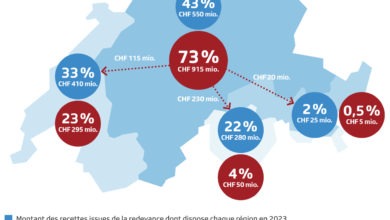APG|SGA élargit son offre digitale dans les gares de Winterthour et Zurich

En décembre 2016, APG|SGA complète son offre digitale étendue avec six nouveaux Rail ePanels : quatre nouveaux écrans ont été installés dans la gare de Winterthour, tandis que la gare de Zurich Hardbrücke a été dotée de deux écrans supplémentaires. En 2016, APG|SGA a ainsi installé de nombreux nouveaux supports publicitaires digitaux dans des Shopping Centers, à la montagne, dans des gares et dans l’espace public. Pour 2017, APG|SGA prévoit une nouvelle offensive digitale visant à donner un élan supplémentaire à la demande en solutions publicitaires Out of Home, grâce à des réseaux aménagés et des innovations dans les espaces de communication fortement fréquentés.
Les CFF prévoient une hausse de la fréquentation de la gare de Winterthour, avec d’ici 2022, 133 000 personnes par jour : APG|SGA y a installé quatre nouveaux Rails ePanels aux meilleurs emplacements (en plein coeur du flux de pendulaires du passage souterrain principal et pour la première fois directement sur le quai). Ils complètent dès à présent le réseau digital existant à Winterthour, qui compte cinq Rail eBoards dans la gare et dix City ePanels sur les places publiques et aux arrêts de bus. À Zurich, deux nouveaux Rail ePanels dans la gare de Hardbrücke contribuent à renforcer la prédominance digitale. Ainsi, avec les 64 Escalator ePanels placés au niveau de cinq escalators fortement fréquentés – une première en Suisse – l’offre Digital Out of Home de Zurich sera portée en 2017 à 129 eBoards, ePanels et Beamers au total.
Grâce aux écrans à haute résolution, les annonceurs atteignent le groupe cible mobile, créent de la pénétration pour les déplacements répétés liés au travail ou aux loisirs, et génèrent des chances de contact récurrentes avec des taux de mémorisation élevés.
2016: une année de consolidation
En 2016, APG|SGA a équipé huit grands Shopping Centers (dont l’Emmen Center, le plus grand centre commercial de Suisse centrale) de 44 nouveaux écrans. Avec actuellement 152 Shopping ePanels, le réseau suisse est idéal pour prolonger les messages publicitaires dans le quotidien, tout en améliorant l’attribution à la marque directement au Point of Sale. Dans l’espace public, APG|SGA « a digitalisé » Biel/Bienne avec huit nouveaux City ePanels. Ils accompagnent tout au long de la journée les près de 55 000 habitants et leurs visiteurs à des endroits très fréquentés du centre-ville. APG|SGA a également placé quatre Mountain ePanels en plein centre de Zermatt. Ceux-ci ont su se forger une place de choix auprès des annonceurs nationaux et internationaux, car le Cervin attire les touristes du monde entier et génère pour la destination près de deux millions de nuitées par an.
Des projets innovants pour 2017
APG|SGA va continuer à développer le secteur d’activité digital. « En 2016, nous avons créé une base solide pour la croissance digitale et, en 2017, nous allons élargir de façon encore plus significative notre offre aux endroits fortement fréquentés », souligne Beat Holenstein, responsable Partner & Product Management. L’an prochain, APG|SGA introduira des produits innovants dans les espaces de communication City, Rail, Shopping et Mountain. D’autres projets destinés à redynamiser les offres digitales sont en préparation.





